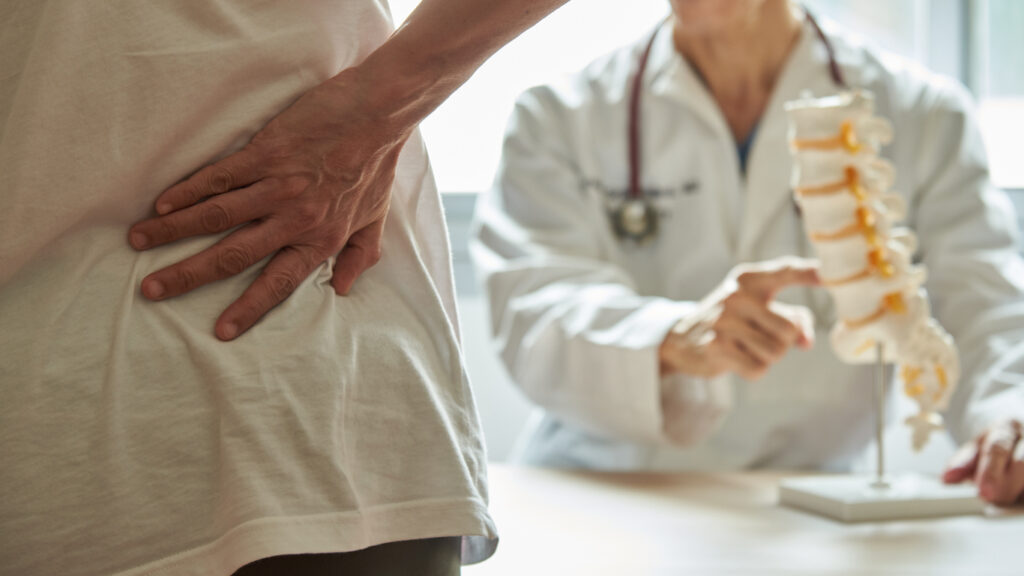
Lumbar spinal fusion is a surgical procedure that permanently connects one or more bony vertebrae of the lumbar spine. Back, leg, or arm pain can result from abnormal movement of the vertebrae rubbing against one another. Fusing the bones together is necessary to stabilize and align the spine, restore the normal disc space between the bones, and protect the spinal nerves and cord from further damage.
Spinal fusion should only be done for the right reasons and after all other options have been exhausted.
It is critical to have realistic expectations and to properly prepare for your lumbar fusion surgery.
Preparing Your Home to Recover From Surgery
Before going to the hospital for surgery, you can do the following to prepare your home to make recovery easier:
Place the phone or phone charger in a convenient location, such as next to the bed or a chair.
- Prepare food or buy ready-to-eat foods.
- Move food, pots, pans, and other cooking utensils to higher shelves or countertops to avoid bending.
- Identify someone who can assist you with shopping and other tasks.
- Shoes, clothing, and toiletries should be placed at a height where you can reach them without bending.
- Remove or secure any throw rugs to avoid tripping over them.
- Consider what changes you’ll make if you have to stay on just one floor of your house.
Equipment Needs
Before surgery, some patients may be fitted for a brace. This brace is an essential part of your recovery.
Your therapist and doctor may also recommend different types of medical equipment to aid in your recovery. Equipment insurance coverage varies from company to company and may change over time. Check with your insurance provider to see if you have insurance for durable medical equipment (DME), such as a walker or commode, so you can budget for any co-pays or equipment that may not be covered.
The home-care coordinator will assist you in ordering the equipment and confirming your insurance coverage. Your medical equipment will be ordered and delivered to your home a few days before your discharge. Equipment may include:
- Elevated commode or toilet seat extender
- Walker
- Long-handled reacher
- Tubseat, bench, or chair to use in the bathtub or shower
Only patients with specific medical needs require hospital beds, which must be prescribed by your doctor.
Other Pre-Surgery Considerations
Medication
Stop taking any nonsteroidal anti-inflammatory drugs (NSAIDs) like ibuprofen and aspirin, whether prescribed or over-the-counter, two weeks before your surgery. Consult your doctor or pharmacist if you are unsure which of your medications are NSAIDs.
After you’ve finished your NSAIDs, you can take extra-strength Tylenol for pain relief. If this does not relieve your pain, consult your doctor about other pain relievers.
Please contact your doctor if you are taking aspirin or Coumadin for a heart condition or blood thinners.
Please bring a list of your routine medications to the hospital on the day of surgery.
Stop Smoking
If you smoke, it is critical that you stop for at least two weeks before your surgery and for six weeks afterward. Smoking has been shown in studies to impede bone graft healing.
Preadmission Testing and Evaluation
Your orthopedic doctor may request that you see a medical doctor to ensure that you do not have any health issues that could interfere with your surgery. Any specific medical problems you may have will be discussed with your family physician or internist by the medical doctor. He or she will also monitor your medical condition after surgery.
Evening Before Your Surgery
A member of the hospital scheduling staff will call you between 4 and 9 p.m. the evening before your admission to confirm your procedure and tell you what time to arrive at the hospital. Inform staff of any health changes, such as a fever or cold.
You must not eat or drink anything after midnight the night before your surgery.
Remove all rings the night before surgery, because your fingers may become swollen in the morning.


